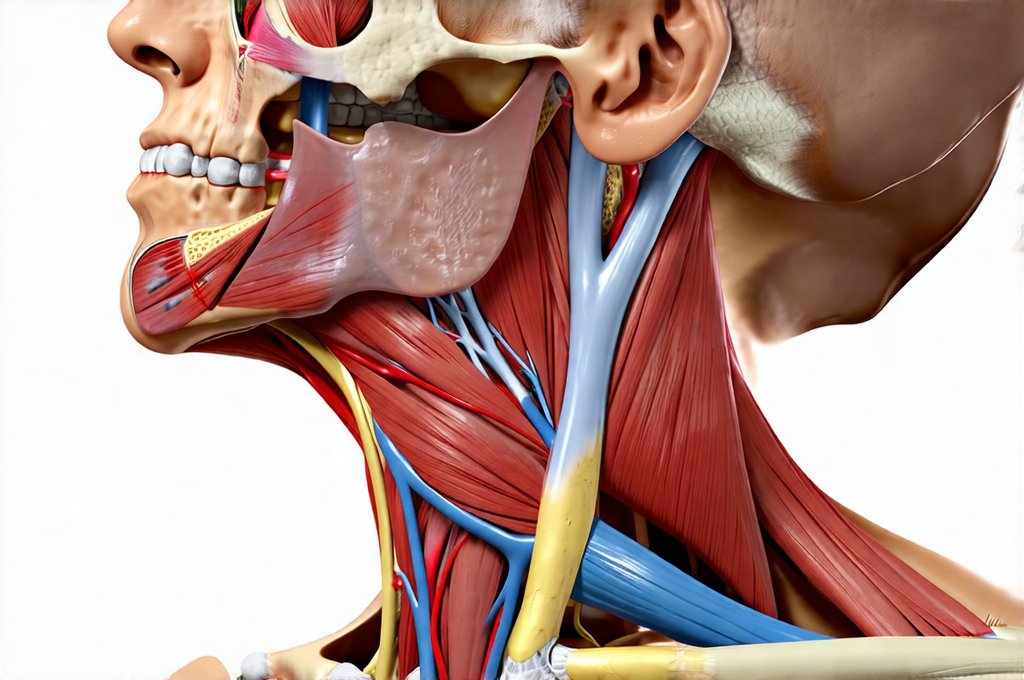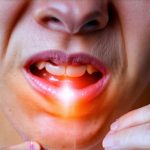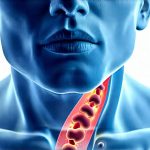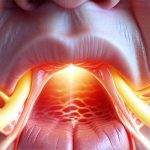Gastroesophageal reflux disease (GERD) is a surprisingly common condition affecting millions worldwide, often manifesting as heartburn but extending far beyond that singular symptom. It’s characterized by the backflow of stomach acid into the esophagus, irritating its lining and causing a range of uncomfortable experiences. While many associate GERD with digestive distress, its impact can be more widespread, subtly influencing seemingly unrelated areas like the throat and even neurological function. This often leads to questions about why individuals experiencing GERD also report sensations like muscle twitching in their throats—a phenomenon that can understandably cause anxiety and concern. Understanding the connection between these two experiences requires a deeper look into both the physiological mechanisms of GERD and the potential ways it might interact with the delicate musculature of the throat area.
The perception of something “wrong” within the body is often more complex than simple physical damage. The brain interprets signals from nerves, muscles, and internal organs to create our experience of health or illness. In the case of GERD-related throat twitching, it’s rarely a straightforward muscle problem; instead, it’s frequently a consequence of irritation, inflammation, or altered nerve function triggered by acid reflux. This can manifest as subtle sensations ranging from a fluttering in the throat to more noticeable spasms, and often leads individuals on a quest to understand why this is happening, particularly when other symptoms of GERD are well-managed. It’s important to recognize that these twitches aren’t necessarily dangerous but represent an interplay between digestive health and neurological responses.
The Link Between GERD and Throat Sensations
The esophagus and throat are intimately connected, both physically and neurologically. When stomach acid repeatedly refluxes into the esophagus, it doesn’t just stay there. It can travel further upwards, reaching the pharynx (the part of the throat shared by breathing and swallowing) and even irritating the larynx (voice box). This irritation is a key component in understanding why GERD can lead to sensations like twitching. The constant exposure to acid causes inflammation, making the muscles in these areas more sensitive and prone to reacting to even minor stimuli. Think of it like an overstimulated nerve ending – it fires more easily and frequently.
Furthermore, the vagus nerve plays a significant role. This long cranial nerve runs from the brainstem down through the neck and into the abdomen, innervating many organs involved in digestion, including the esophagus and throat. GERD-induced inflammation can impact the vagus nerve, leading to dysregulation of muscle contractions. This dysregulation isn’t necessarily a sign of damage but rather an altered pattern of firing that can be perceived as twitching or spasms. The brain then interprets these unusual signals as something needing attention, further amplifying the sensation.
It’s also worth noting that some individuals with GERD develop laryngopharyngeal reflux (LPR), sometimes called “silent reflux.” Unlike typical GERD, LPR often doesn’t present with classic heartburn symptoms; instead, it focuses on throat-related issues like chronic cough, hoarseness, and a feeling of something stuck in the throat – all of which can contribute to muscle tension and twitching. Because the symptoms are different, LPR can be harder to diagnose, adding to the confusion surrounding throat sensations. Understanding the role of antacids can also help manage these issues.
Understanding Esophageal Spasms
Esophageal spasms are powerful, often painful contractions that disrupt normal swallowing. While not always directly caused by GERD, the two conditions frequently coexist. GERD can increase the likelihood of esophageal spasms developing, although the exact relationship isn’t fully understood. The theory is that chronic inflammation and irritation from acid reflux hypersensitize the esophagus, making it more reactive to stimuli and prone to inappropriate contractions. These spasms can feel like a squeezing sensation in the chest or throat, sometimes radiating to the back or shoulder.
- Esophageal spasms are distinct from heart attacks, but the symptoms can be similar, so seeking medical evaluation is crucial if you experience chest pain.
- Different types of esophageal spasms exist, including diffuse and nutcracker esophagus, each with varying degrees of severity.
- Treatment often involves medications to relax the esophageal muscles or address underlying GERD contributing to the problem.
The sensation from an esophageal spasm can be incredibly unsettling and might trigger anxiety, which itself can exacerbate muscle tension in the throat area, creating a vicious cycle. It’s important to differentiate between true esophageal spasms (which typically involve significant pain) and the more subtle twitches that are often associated with GERD-related irritation. You may also experience throat clearing as a symptom.
The Role of Anxiety and Stress
Anxiety and stress are powerful contributors to many physical symptoms, and muscle twitching is no exception. Individuals experiencing chronic GERD may already feel anxious about their health, particularly if they struggle to manage their symptoms effectively. This anxiety can lead to increased muscle tension throughout the body, including in the throat area. The brain’s heightened state of alert makes it more likely to notice and amplify even minor sensations, turning a slight twitch into a concerning symptom.
- Stress hormones like cortisol can impact nerve function and muscle sensitivity, making individuals more prone to twitches.
- Catastrophizing—the tendency to assume the worst possible outcome—can worsen anxiety and exacerbate physical symptoms.
- Relaxation techniques such as deep breathing exercises, meditation, or yoga can help reduce stress and alleviate muscle tension.
It’s crucial to acknowledge that anxiety isn’t a cause of GERD itself but can significantly influence the perception of symptoms and potentially worsen them. Addressing underlying anxiety through therapy or lifestyle changes can often provide significant relief for individuals experiencing both GERD and throat twitching. Understanding food and mood is also important in managing stress levels.
Lifestyle Modifications and Management Strategies
Managing GERD effectively is the first step in reducing throat irritation and potential muscle twitching. This involves a combination of dietary and lifestyle adjustments, as well as potentially medication. Here are some strategies:
- Dietary Changes: Avoid trigger foods such as caffeine, alcohol, chocolate, spicy foods, and fatty meals. Smaller, more frequent meals can also help reduce reflux.
- Lifestyle Adjustments: Elevate the head of your bed by 6-8 inches to prevent nighttime reflux. Avoid lying down immediately after eating. Maintain a healthy weight. Quit smoking.
- Medication (as prescribed by a doctor): Over-the-counter antacids can provide temporary relief, while proton pump inhibitors (PPIs) or H2 blockers may be prescribed for more persistent GERD.
- Hydration: Drinking adequate water helps dilute stomach acid and aids in digestion.
It’s vital to remember that self-treating isn’t advisable. A healthcare professional can accurately diagnose the cause of your symptoms, rule out other potential conditions, and recommend a personalized treatment plan. If throat twitching persists despite effective GERD management, further investigation may be necessary to identify any underlying neurological factors or other contributing causes. It’s also important to avoid fixating on the twitches themselves; focusing on holistic well-being—including stress reduction and healthy lifestyle habits—can often lead to a significant improvement in overall quality of life. The liver’s role in detox is also essential for overall health, which can impact GERD symptoms. A healthy gut relies on proper bile production too. Finally, remember that sometimes throat twitching can be related to GERD and hiccups.


















